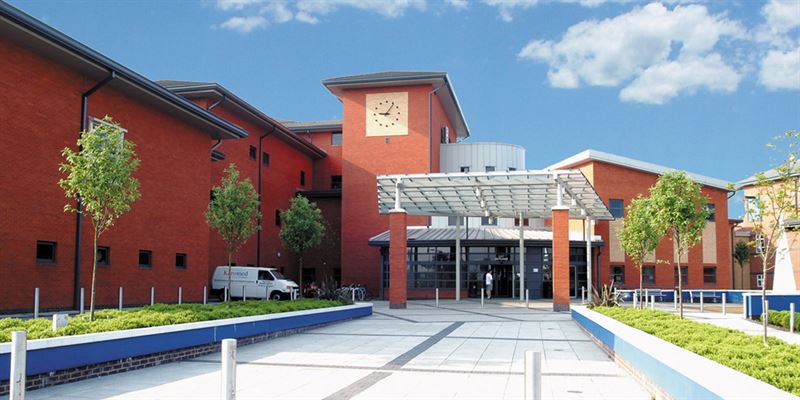Saving lives at Wythenshawe Hospital
A patient with sickle cell anaemia and heart failure that at the time was not a candidate for transplant was transferred to Wythenshawe Hospital some time ago. In order to manage his heart failure and potentially make him eligible for transplant, Dr. Nnamdi Nwaejike and his colleagues choose to use a Getinge intra-aortic balloon pump.

Wythenshawe Hospital, part of Manchester University NHS Foundation Trust, is a major acute teaching hospital where the fields of expertise include cardiology and cardiothoracic surgery, heart and lung transplantation, respiratory conditions, burns and plastics, cancer and breast care services.
“We see the full spectrum of cardiac disease as well as heart and lung transplants but also advanced heart failure therapy,” says Nnamdi Nwaejike, Cardiac Surgeon.
They had a case of a young man in his 20s who suffered from heart failure and at the time of his hospitalization was not eligible for transplantation because of complications from sickle cell anaemia.
“Heart transplants for patients with sickle cell anaemia has only been done a handful of times due to many precipitating risk factors. So we sent him straight to the ICU to manage the heart failure.”
By using intra-aortic balloon pump (IABP) therapy with Getinge’s 50cc balloon catheter, the medical team was able to stabilize the patient.
“We used the 50cc balloon catheter to provide the highest level of IABP support available as we wanted him to get in better shape for a potential heart transplant, while waiting for approval.”
The patient was successfully bridged with IABP therapy until the decision was made to escalate to an implantable mechanical circulatory support device.
“We didn’t know how long he would have to wait for a transplant and we just wanted to manage him in the best way we possibly could.”
The patient did receive a heart transplant and after a period of recovery he was discharged home and is doing well today.
“The IABP is a fairly basic but very beneficial and important support mechanism in cardiac surgery. It is amazing that it can give such support and minimize the use of inotropes. Used at the right time, in the right application, it can make a big difference and bridges a patient to further therapy.”
Saving lives is his everyday job, and Nnamdi says teamwork is key – working together with experts in different specialties who all come together to deliver a final solution.
“The ultimate reward is when you see the patient in the clinic later on. They might not always know exactly what they have been through but you know it and the greatest feeling is when you see how well they have recovered and gone back to their families to carry on with their lives.”
He continues:
“I saw this particular patient just a while ago, he was back at the clinic with his family. Thanks to the IABP he is doing really well today and that is very motivating.”
Learn more about Getinge’s balloon pumps >>
Media contact:
Anna Appelqvist, VP Corporate Communications
Tel.: +46 (0)10-335 5906
E-post: anna.appelqvist@getinge.com
About Getinge
With a firm belief that every person and community should have access to the best possible care, Getinge provides hospitals and life science institutions with products and solutions that aim to improve clinical results and optimize workflows. The offering includes products and solutions for intensive care, cardiovascular procedures, operating rooms, sterile reprocessing and life science. Getinge employs over 10,000 people worldwide and the products are sold in more than 135 countries.


